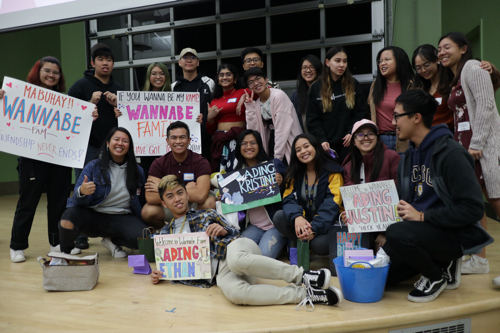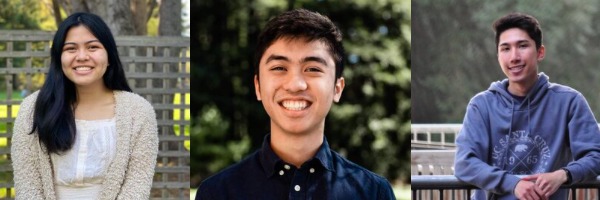Campus News
Student-led mentorship program offers holistic support
The Kuya-Ate Mentorship Program is a student-initiated retention project targeted to, but not limited to, Pilipino/x students at UC Santa Cruz. In addition to providing mentorship opportunities, KAMP also offers academic and social and cultural support.


If it weren’t for the Kuya-Ate Mentorship Program, Mariah Peralta might have dropped out of UC Santa Cruz during her first year.
The big brother/big sister program stepped in to help when she needed it most. Peralta was trying to move past a rough winter quarter. She was at her lowest point when her Ate (big sister) pushed her to attend a rehearsal for the annual Pilipino Cultural Celebration.
“She said, ‘I’m picking you up at your dorm,’” Peralta remembers. “You’re coming with me.’” It was just what Peralta needed to overcome her troubles.
The Kuya-Ate Mentorship Program is a student-initiated retention project targeted to, but not limited to, Pilipino/x students at UC Santa Cruz. In addition to providing mentorship opportunities, KAMP also offers academic and social and cultural support. The goal of the program is to improve retention of all students of color at the university.
It operates under Bayanihan, a large organization serving Pilipino/x and Pilipino/x- American students. As well as engaging education (e2), which is a student-initiated outreach and retention center for student engagement and academic excellence.
Peralta, now a third-year environmental science student, is one of three coordinators of KAMP this year, along with Ethan Domingo, a second-year computer science major and statistics minor, and Shane Vidal, second-year psychology student.
Peralta’s positive experience with KAMP has strengthened her resolve to assist students in this very unusual year where most classes are online only.
“Even with COVID, we want to be present for these folks,” she said. “Our work is not going to stop because we’re online.”
Like most other campus programs, KAMP has shifted its activity online to a Zoom format. It was a challenge but the group made it work. “It definitely took a lot of thinking and planning,” said Domingo.
Among online events that have been or will be scheduled are craft sessions and workshops finding off-campus housing and attending graduate school.
For a craft session, KAMP sent yarn and other supplies to students and then told students to log on to Zoom on a certain date so all students could make the bracelets together.
For the workshop on graduate school, KAMP got alumni to share their experiences in post-UC Santa Cruz life.
“It was nice knowing there are people who were in the same situation and were able to succeed and go further than graduating undergrad,” said Vidal, adding that he felt encouraged by hearing the experiences of alumni who have found success in their field.
KAMP matches students with mentors through surveys that students take expressing their interests. The student-mentor pairs are then placed in mini-communities of 15–20 people called families. This gives students a chance to develop closer relationships in a way that might not be possible in the larger Bayanihan and KAMP organizations, which includes 100–200 students, Vidal said.
Like Peralta, Vidal had a great experience with his mento, in his case his Kuya (big brother). It was a big transition for him as well to come to college in a completely new environment and to explore different aspects of his identity. He appreciated that he and his Kuya had the shared experience of a Pilipino/x background. “I had an anchor of who I am that I could fall back on,” Vidal said.
The students leaders said they look forward to the day when they can all join together in person again. They said there is no replacement for a big group of students meeting together.
“Being with other Pilipino/x who look like you, who have gone through similar experiences—it’s an exhilarating and empowering feeling,” Domingo said.